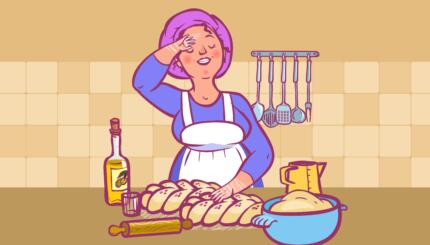Pisher and alte kaker are both Yiddish words that describe people. A pisher is someone who is young, an alte kaker is someone who is old. Neither term is particularly flattering.
The word pish means to urinate. A pisher, therefore, is someone who urinates — presumably in their pants. In practice, it can be applied to small children who literally do this. In those cases, it can be used affectionately: “Look at the little pisher trying to tie his shoes!” It can also refer to people who seem too young or green to be assigned a certain responsibility. Or for people who express unearned confidence, as in: “We’re trusting the merger to that pisher from marketing? He was hired five minutes ago.”
Equally unflattering, an alter kaker is someone who is old and out of touch, usually cranky and fussy as well. It literally means “old defecator.” Like many Yiddish words for negative personality types, it can be used mildly and affectionately, as in: “All the alter kakers were sitting in the park arguing about whose grandson is smarter.” But it can also have more sting, as in: “Some alter kaker at the shul barked at me for wearing jeans — like God’s offended by denim but not his smell.”
Yiddish offers a rich assortment of words to describe unfortunate or disagreeable personalities, most of which are not age-linked. Alongside the pisher and the alter kaker, there’s the shlemiel and the shlimazel, the nebbish, the putz and the shmuck.
With your help, My Jewish Learning can provide endless opportunities for learning, connection and discovery.



